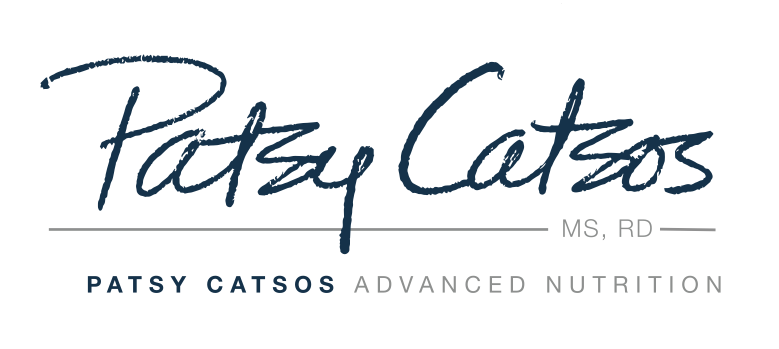Q. I have ulcerative colitis; the worst part about it so far is taking all the medicine. Could a low-FODMAP help me get off the drugs?
A. The short answer: It isn’t realistic to expect a low-FODMAP diet to completely replace drug therapy for ulcerative colitis. However, it can help reduce use of over-the counter and prescription medications when it helps with during remission.
Most readers of this blog have irritable bowel syndrome (IBS) not inflammatory bowel disease (IBD—Crohn’s disease or ulcerative colitis). If you are concerned that you might have IBD, read this first, then discuss your concerns with your primary care provider or gastroenterologist.
Can a low-FODMAP diet help someone with ulcerative colitis use less medication?
This is a question that really resonates with me. I’ve had ulcerative colitis since my early 20s. At the time of my diagnosis, I was a new dietitian and excited to apply the concept of food as medicine. I was crushed, and even embarrassed, to learn that I would probably be on drugs of some sort to manage my ulcerative colitis indefinitely. It felt like a personal failure. So I can relate to the emotions that make us want to believe a low-FODMAP diet could completely take the place of medication. But so far, there is no evidence that it can.
On the plus side, low-FODMAP diet can often help reduce IBD symptoms for people with inflammatory bowel disease (IBD). Unfortunately, many of us do continue to have IBS-like symptoms such as excess gas, bloating, and diarrhea or constipation even when we are technically in remission. It’s arguable whether those symptoms are actually IBS or just part of IBD. But one way or the other, it’s pretty great to have a nutrition plan that can help you feel better. There have been several studies of low-FODMAP diet for IBD patients in remission that show impressive results, and my personal and clinic experience is very positive, too. Would I trade a few of my favorite high-FODMAP foods to have fewer mad dashes to the toilet? You bet! We may not be able to get off our maintenance meds for the IBD itself, but we can sure use a lot less anti-diarrheals, laxatives, anti-spasmodics, etc. when symptoms are well controlled with diet.
Most IBD patients in remission can do the low-FODMAP program in The IBS Elimination Diet and Cookbook as written, to identify their food symptom triggers. Some may instead choose the “FODMAP Lite” version of the program (starts on page 156 of my book). This second approach is sometimes called “FODMAP gentle”, or the “bottom up approach” and it involves identifying and avoiding the biggest sources of FODMAPs in your diet, rather than going through the whole elimination and reintroduction process. Crohn’s patients with a history of obstructions may have to modify the low-FODMAP program in the book to use it safely.
It would be great to have more direct proof of whether or not low-FODMAP diet can help induce or maintain remission in IBD, but those studies haven’t yet been done. Logically, though, it makes sense for patients in an active IBD flare to try avoiding large portions of the highest-FODMAP foods. I think we can all agree that the midst of an IBD flare not a good time to be eating large portions of beans, trail mix and pizza!
In my practice, the most common problems for patients in an IBD flare are beverages. If you are medically dehydrated, let your doctor tell you what to drink. But for everyday fluid intake, don’t use high FODMAP beverages—they are throwing fuel on the fire of your IBD symptoms. When you already have diarrhea, you certainly don’t need more caused by poor beverage choices. Avoid regular milk of any kind, fruit juices, and sweetened beverages. Again, unless you are medically dehydrated, you really don’t need the electrolytes the beverage industry is pushing, or the ginger ale you had when you were sick as a kid. There are better choices, such as still water, infused water, and ginger or peppermint tea. Most IBD patients do well with flavored selzer waters or spritzers with small amounts of orange, cranberry or grape juice and carbonated water.
Fiber sources are not all the same for people with IBD. Navy beans (left) are apt to cause trouble, while small portions of pecans, pepitas and pine nuts, which are lower in FODMAPs, may be tolerated more easily.
Another great way to use your knowledge of FODMAPs is to help you select food sources of fiber that are likely to be well tolerated. Many experts believe that people with IBD benefit from fiber in their diets. But high-FODMAP fibers tend to contribute to excess gas and abdominal pain because they are very rapidly fermented. Slowly fermented fibers provided by low-FODMAP foods might be better choices. So even if you are not doing an elimination diet protocol, learning a little about FODMAPs and choosing some of good low-FODMAP sources of fiber can help you broaden your diet and get the fiber you need.
For more information about the role of low-FODMAP diets in IBD, see Colombel JF, Shin A, Gibson PR. AGA Clinical Practice Update on Functional Gastrointestinal Symptoms in Patients with Inflammatory Bowel Disease: Expert Review. Clin Gastroenterol Hepatol. 2019;17(3):380-390.e1. doi:10.1016/j.cgh.2018.08.001.
For more information about alternative approaches to low-FODMAP diets, see Halmos EP, Gibson PR. Controversies and reality of the FODMAP diet for patients with irritable bowel syndrome. J Gastroenterol Hepatol. 2019:1-9. doi:10.1111/jgh.14650.
This page may contain affiliate links. We are a participant in the Amazon Services LLC Associates Program, an affiliate advertising program designed to provide a means for us to earn fees by linking to Amazon.com and affiliated sites.



